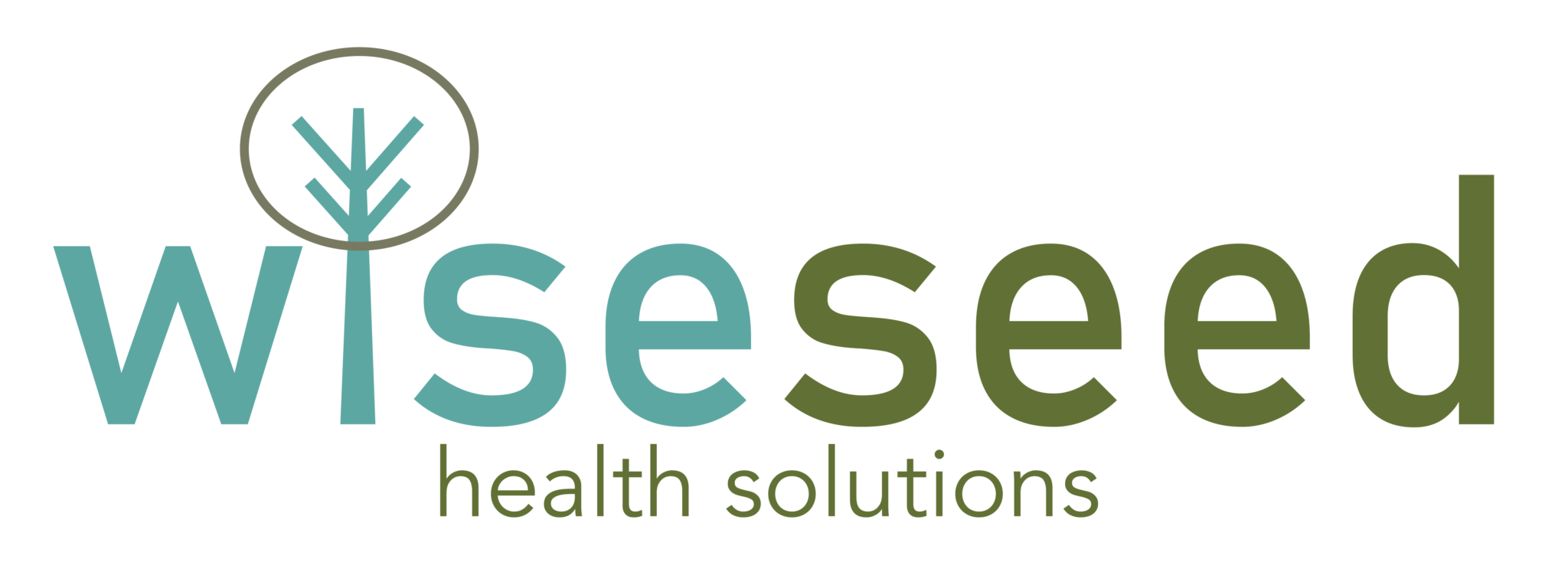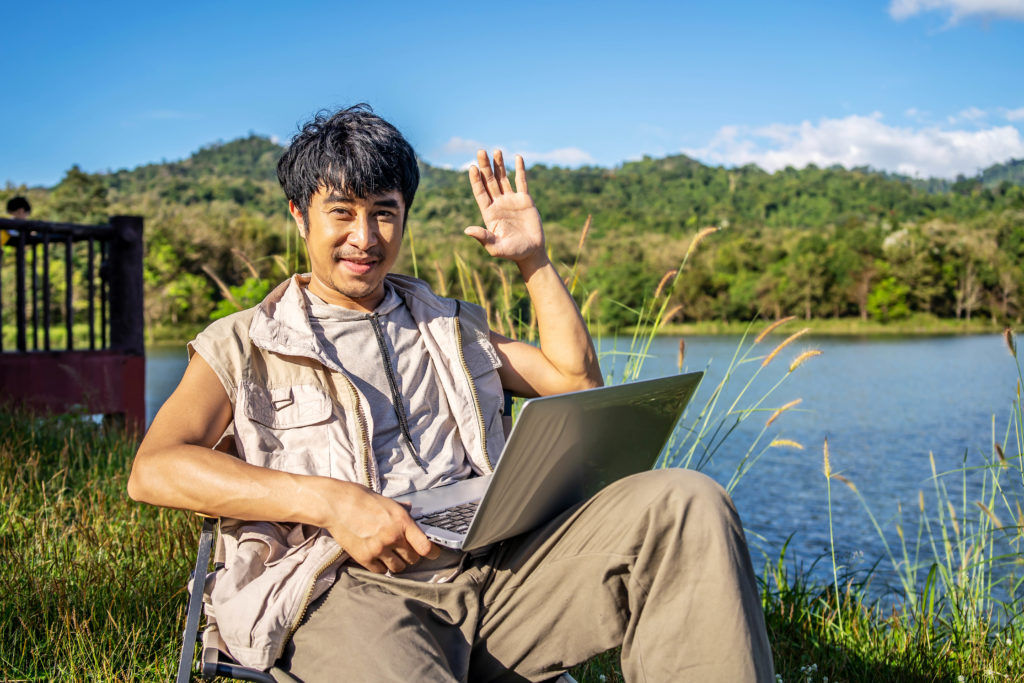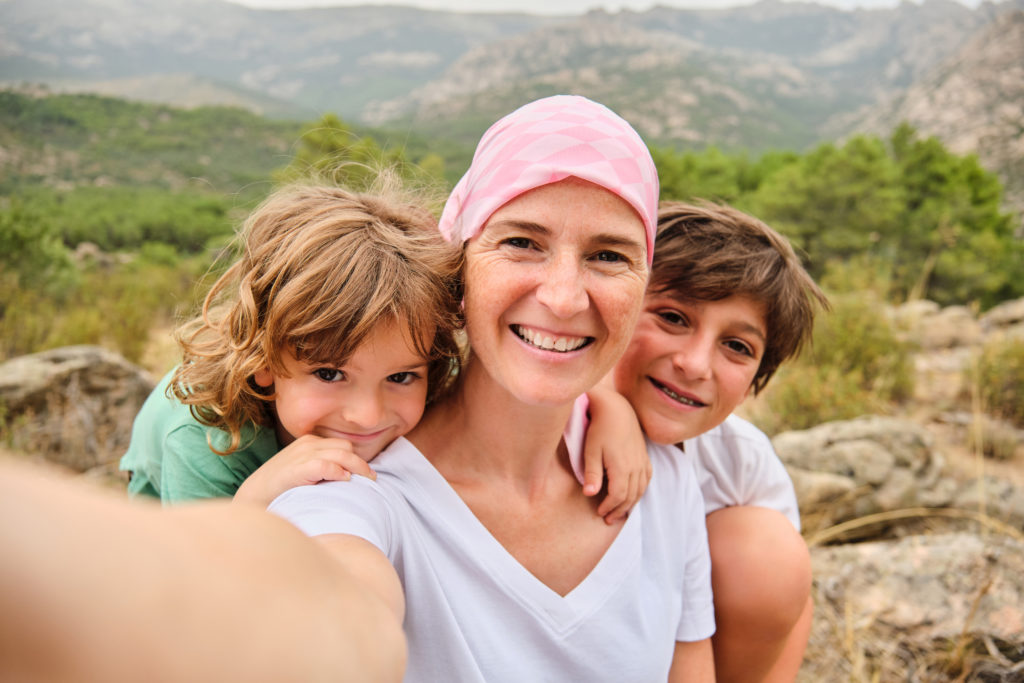Exercise for Immune Resilience
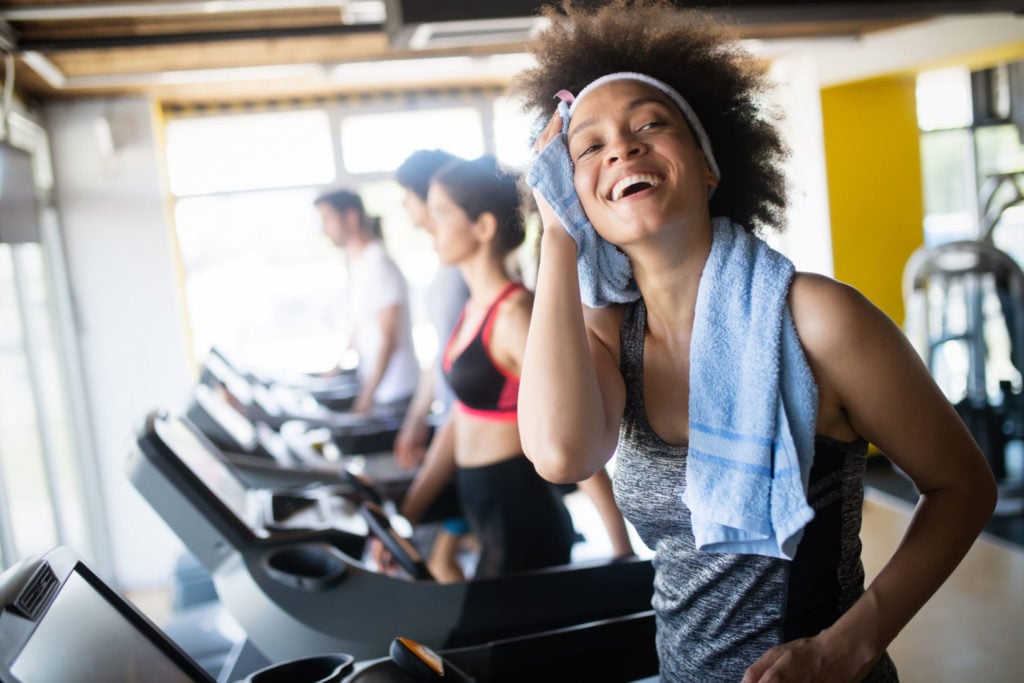
‘Forewarned, forearmed; to be prepared is half the victory.‘ Miguel de Cervantes
Although the vaccine development in response to COVID-19 has been remarkable, delivering vaccine to populations in need has been less so. At the time of writing, most Australians remain unvaccinated. Globally this is the rule rather than the exception, with vaccine shortages, disrupted supply chains and government delays present in many countries.
We’ve written a previous article about how you can improve your COVID-19 resilience. Increasing your COVID-19 resilience is especially important for those of us who haven’t yet been vaccinated, because we know that COVID-19 can cause a range of long-term health problems (1).
So I’m very happy to report some rare good news. A recent analysis has provided the strongest evidence to date that exercise strengthens your immune system and protects you against viral infections (2).
Exercise and Immune Function
Sebastion Chastin and Colleagues analyzed a large number of clinical trials that examined the effects of exercise on immune function (2). In their analysis, they answered three important questions (2).
1. Does exercise protect you from viral infections?
To answer this question, the Author’s combined the data from six studies that provided a large sample size of people (2), which greatly increases the confidence in their finding.
First, they asked if engaging in exercise reduced the number of infections? In a sample size of over 500,000 individuals, the Author’s found that exercise provided a risk reduction of 31% for community acquired infectious disease (2). Next, looking at over 400,000 people, they found that exercise reduced the risk of death by infectious disease by 37% (2)!
Thus, engaging in exercise both reduces your risk of getting infected by a communal virus and reduces you’re your risk of dying from infection.
2. Does exercise improve your immune system function?
The Author’s then examined a variety of immune markers. The two strongest effects of exercise were seen in helper-T cell numbers, and in the antibody response in mucosal layers found in your mouth, nose and lungs (2).
Helper-T cells regulate and co-ordinate your immune response. They are the General’s of your immune system that oversee the action and make sure you mount the right immune response for the type of infection. For example, viruses and bacteria require a different immune response, which is determined largely by your helper-T cells. Exercise increases the number of your helper T-cells (2). Importantly, this is true even for older adults (2).
IgA is the antibody type that present within your mucosal layer. Here it can bind to an neutralize viruses and bacteria invading your airways, making IgA one of your first lines of defense against viral and bacterial invaders. Exercise improves your mucosal immunity by increasing your levels of mucosal IgA (2).
3. Does exercise improve your vaccine response?
To answer this question, the Author’s pooled six trials that examined how exercise effected antibody response after influenza, pneumococcal and chicken-pox vaccines (2). And guess what? Exercise improved antibody response to vaccine by about 14% (2). It’s now clear that exercise does indeed improve your vaccine immune response.
How to Exercise for Immune Resilience?
The total volume of exercise used in different clinical trials was quite large, ranging from 1 to 10 hours per week (2). The exercise intensity used in the studies ranged from moderate to vigorous. Importantly, no detrimental effects noted at the upper end of the training volume and intensity. For those of you who like to train hard, that’s good news!
A good rule of thumb is keep your training volume between 2.5-10 hours per week and your intensity moderate to high to improve your immune function.
However, to strengthen your immune system, each exercise session should last no more than one hour (2). Obviously, this doesn’t include your warm-up or cool down.
This is because training sessions that last longer than one hour become increasing stressful on your body, which suppresses your immune system (3). For this reason, train as efficiently as possible and get your workout done in under an hour.
Finally, using exercise to improve your immune function takes time. For example, the studies that investigated improving vaccine response had their participants exercising for 20 weeks prior to receiving their vaccine (2). Exercise is not a quick fix, it’s a lifestyle choice.
Additional Factors for Increasing Your Immune Resilience
As we’ve covered this topic in detail, here are the high notes.
- Avoid infection. Social distancing, hand washing, mask wearing. You know the drill.
- Adequate Sleep. Adequate sleep is essential to maintain your immune function and recovery from exercise. Make it a priority.
- Nutrition. Eat nutrient dense foods that provide all the proteins, healthy fats, complex carbohydrate, vitamins and minerals that you need.
- If required, supplement with Vitamin D and additional protein.
- Seek out joy.
- Stay connected with your friends, family and social community as best you can.
Take Home Message
Regular exercise protects you from viruses in three ways. First, exercise makes you less vulnerable to viral infection and less likely to die from infection. Second, exercise increases key components of your immune system and strengthens your mucosal immune barrier. Third, exercise increases your immune response to vaccination.
Please click on the link below for your free PDF.
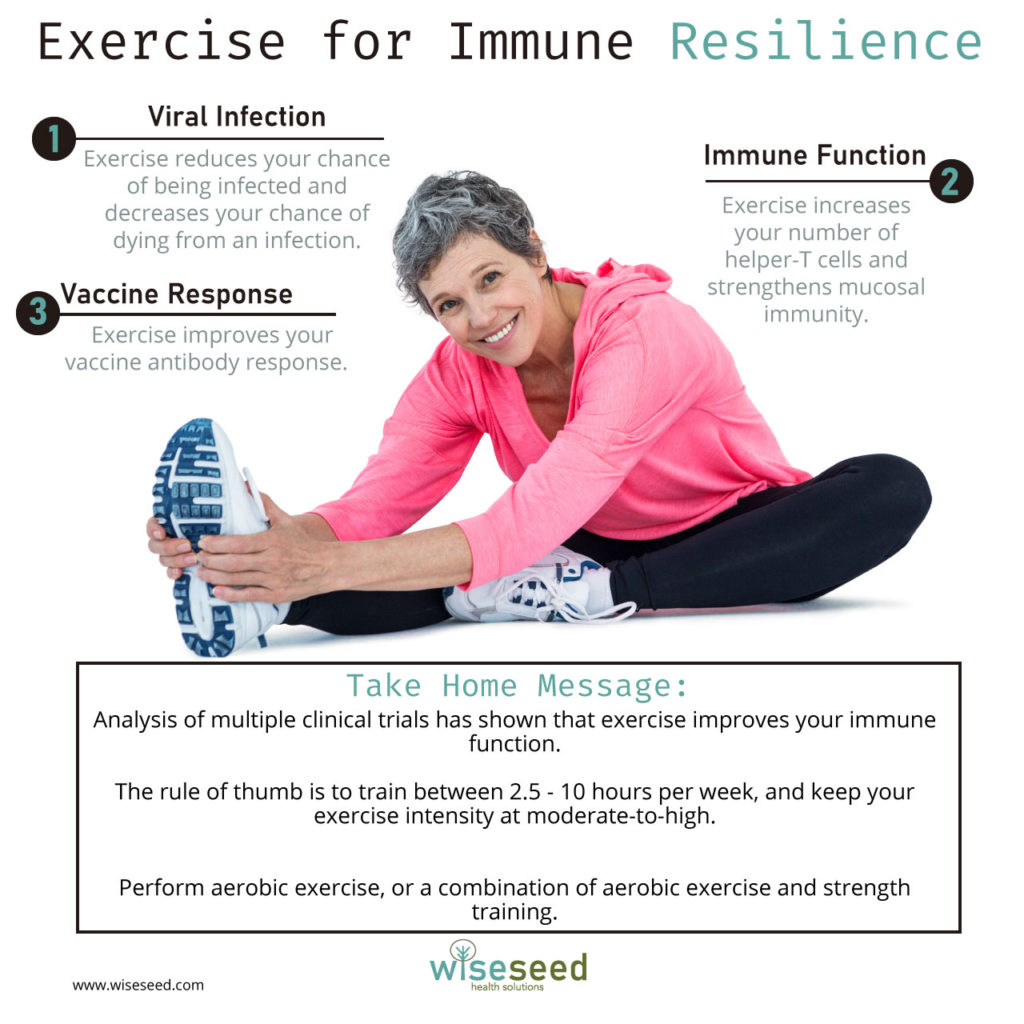
References and Further Reading
1. B. Silva Andrade et al., Long-COVID and Post-COVID Health Complications: An Up-to-Date Review on Clinical Conditions and Their Possible Molecular Mechanisms. Viruses 13, (2021).
2. S. F. M. Chastin et al., Effects of Regular Physical Activity on the Immune System, Vaccination and Risk of Community-Acquired Infectious Disease in the General Population: Systematic Review and Meta-Analysis. Sports Med, 1-14 (2021).
3. D. C. Nieman, L. M. Wentz, The compelling link between physical activity and the body’s defense system. J Sport Health Sci 8, 201-217 (2019).
Acknowledgements
Images provided by Wavebreakmedia and nd3000
Disclaimer
The material displayed on this website is provided without any guarantees, conditions or warranties as to its accuracy.
Information written and expressed on this website is for education purposes and interest only. It is not intended to replace advice from your medical or healthcare professional.
You are encouraged to make your own health care choices based on your own research and in conjunction with your qualified practitioner.
The information provided on this website is not intended to provide a diagnosis, treatment or cure for any diseases. You should seek medical attention before undertaking any diet, exercise, other health program or other procedure described on this website.
To the fullest extent permitted by law we hereby expressly exclude all warranties and other terms which might otherwise be implied by statute, common law or the law of equity and must not be liable for any damages whatsoever, including but without limitation to any direct, indirect, special, consequential, punitive or incidental damages, or damages for loss of use, profits, data or other intangibles, damage to goodwill or reputation, injury or death, or the cost of procurement of substitute goods and services, arising out of or related to the use, inability to use, performance or failures of this website or any linked sites and any materials or information posted on those sites, irrespective of whether such damages were foreseeable or arise in contract, tort, equity, restitution, by statute, at common law or otherwise.
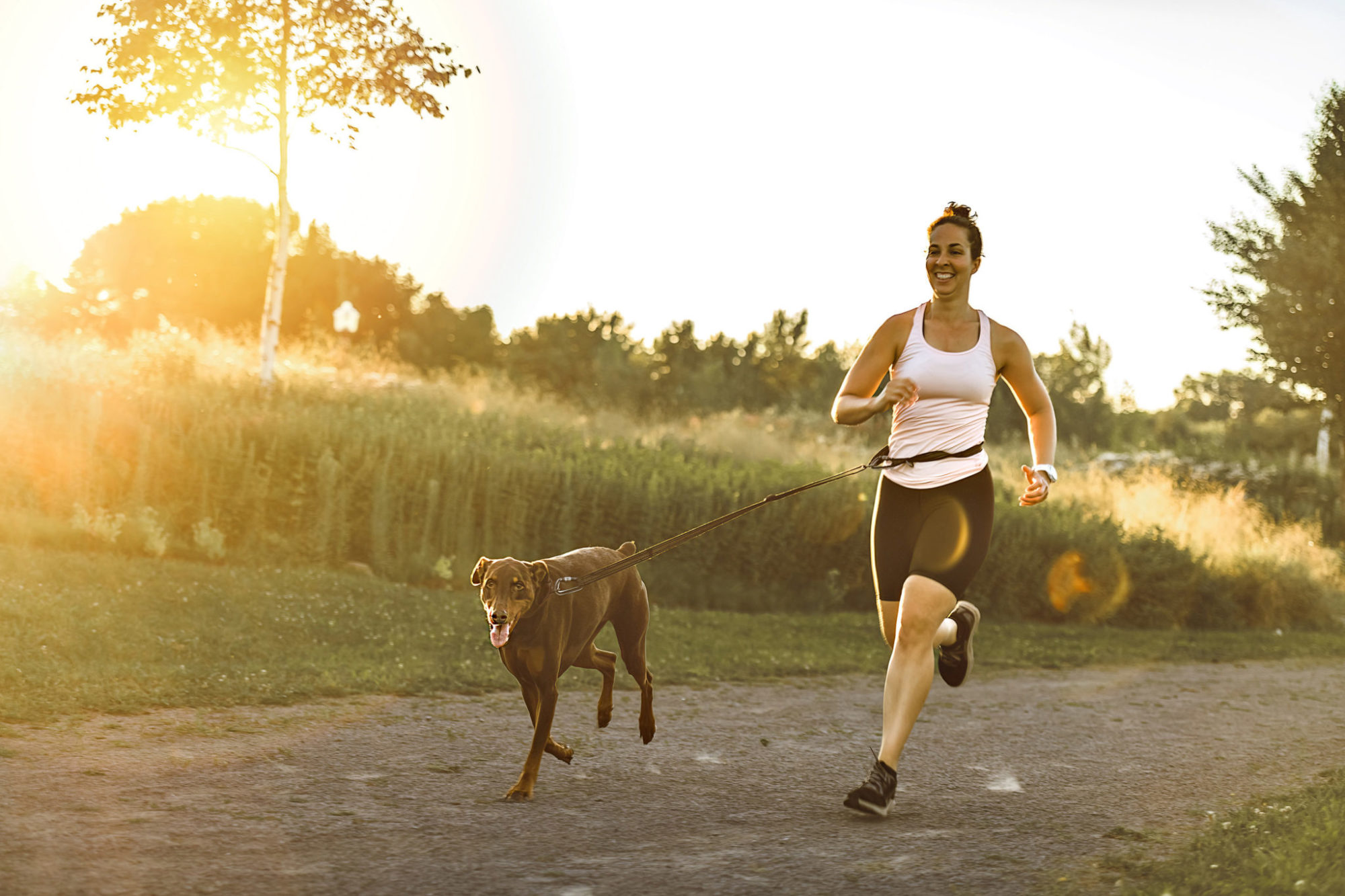
Ten Minutes is All You Need
Research has shown that ten minutes of moderate-to-vigorous exercise performed each day is enough to significantly reduce your risk of early death.

Ten Minutes is All You Need
Research has shown that ten minutes of moderate-to-vigorous exercise performed each day is enough to significantly reduce your risk of early death.
